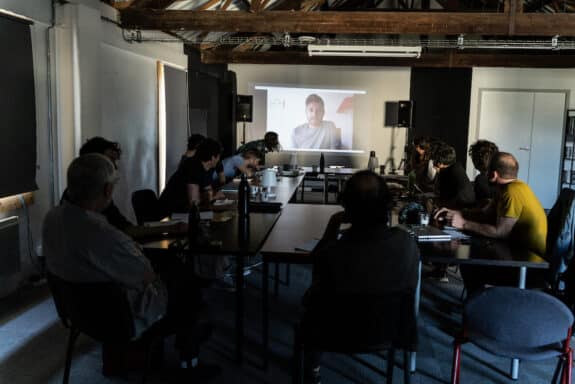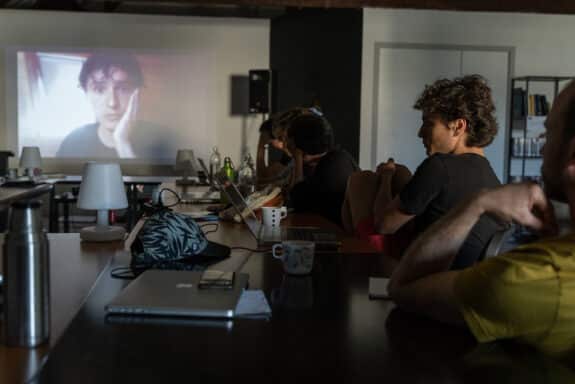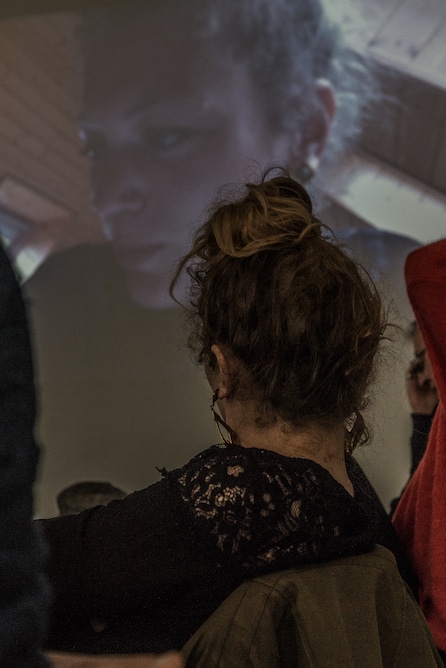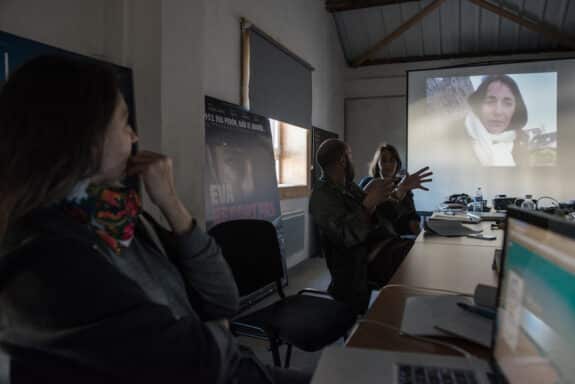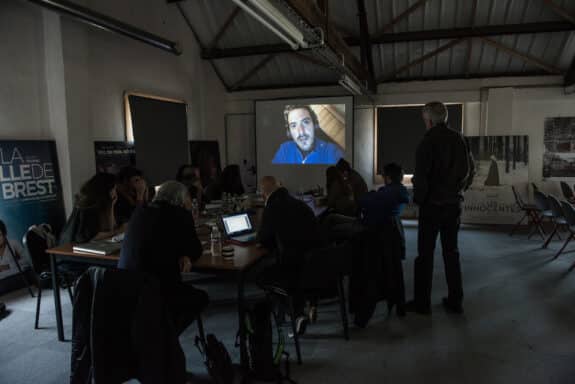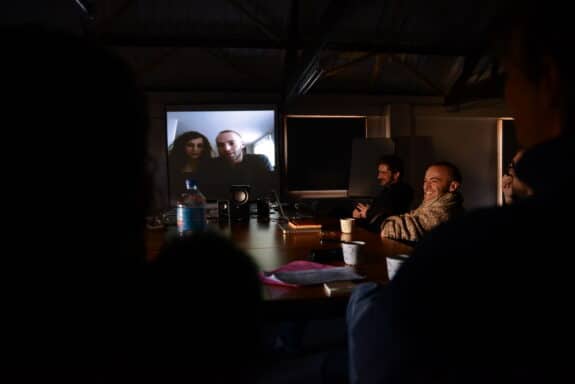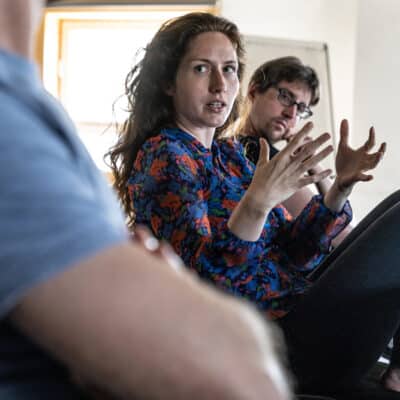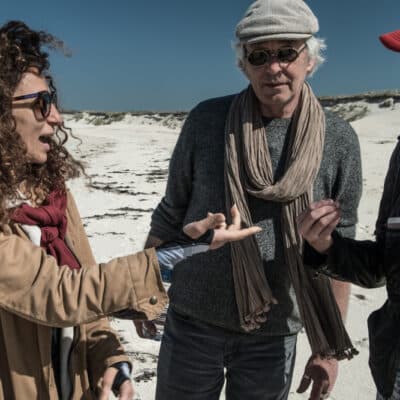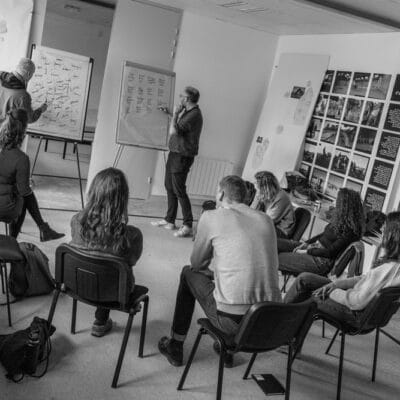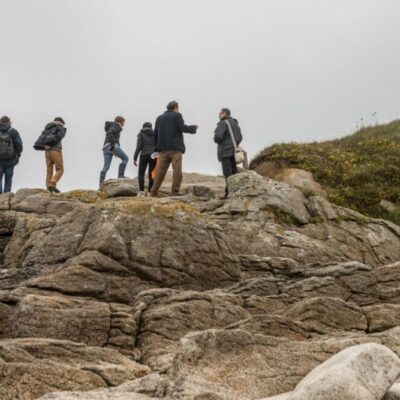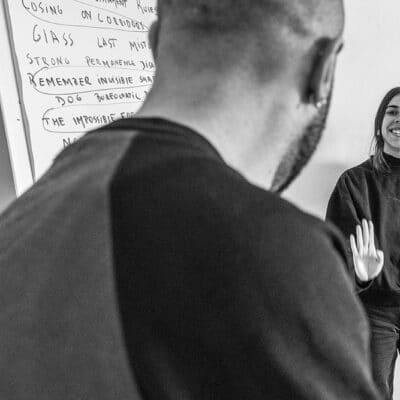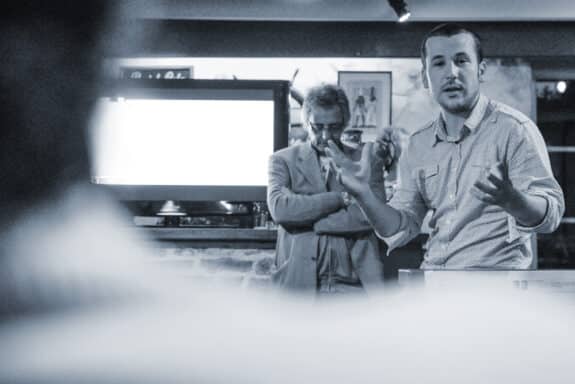
The Tell Me
Through orality, the human brain has an extraordinary faculty for creating stories
For thousands of years, “Telling” was the key tool for transmission, a means of spreading the most unique, inspiring, founding, real or fantasized experiences from one person to another. Through orality, everyone was part of the massive broadcasting chain relaying man’s poetical, political, mystical experiences. Today this relaying through “telling” has become, to a large extent, subcontracted out to big and small screens.
At Le Groupe Ouest, we help writers reinstate this essential function, we need it to allow the sensitive matter to emerge, to maintain connections among human beings. At Le Groupe Ouest, re-establishing this “Telling” function is the means to recreating, reinstating the sacred link between raconteur and listener, the sacred link needed in connecting with audiences in its most generous sense.
The “Tell Me” (“Raconte-moi” in French): an essential tool for writers at Le Groupe Ouest
It’s for this fundamental reason, and for many others, that we claim the “Tell Me” has become the essential tool for writers at Le Groupe Ouest. It involves telling someone the story we’re trying to develop, (often stressful for a novice writer), in less than five minutes, often using video.
The brain works in such a way that, when we speak, it’s constantly seeking paths to convey what we’re trying to formulate. Orality has shaped the human brain into an incredible storyteller, incapable of interrupting its own flow as it focusses on convincing its listener. Through trial and error, thanks to its fascinating oral plasticity, we test, we improve, and in most cases, we end up unearthing the power and the soul of our story.

